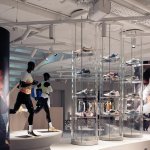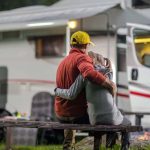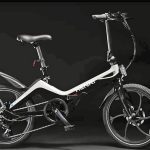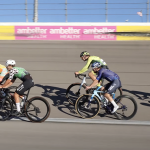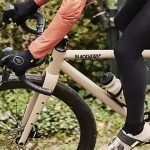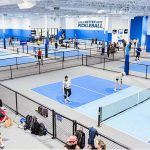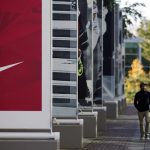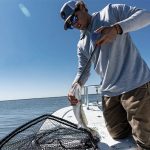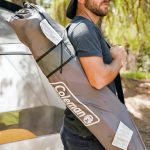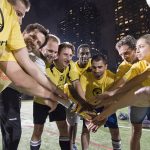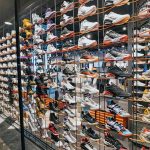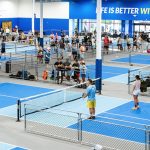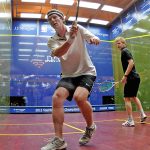Lee Fromson is the President of Cascade Designs, Inc. Lee has worked for Cascade nearly from its inception, starting as the Controller in 1982. Over the twenty plus years of service with the company, Lee has held ever-increasing roles, from Chief Financial Officer to Chief Operating Officer to his current Presidential position. He has been instrumental in every acquisition and major strategic decision in the companys history.
In addition to his duties at the company, Lee is very active in the Outdoor Industry Association, the trade association for the industry. He has been a member of the Board of Directors and Executive Committee for this organization for the past seven years and assumed the role as Chairman of Board in August 2003.
Lee holds a Bachelor of Science degree in Business Administration from Miami University of Ohio, and an MBA from the University of Idaho.
BOSS: So, lets start with the obvious question everyone is asking this time of year, how did Summer Market go?
LF: It was amazingly good! I am so pleased with our team and the products we put out this year and the response everyone showed. More importantly, when you take the pulse of the retail environment, I think there was more of a spring in their step, and certainly more smiling faces. I think maybe we are finally over that 9/11 hangover and expectations are really rising. That is very important.
BOSS: VNU made the decision to keep OR in SLC based on the OIAs recommendation and the industry as a whole seems happy about the decision. What exactly does the OIA expect from SLC and the state of Utah in the future?
LF: There are really two sides to the equation. First is the straight convention center issues it must expand. Weve got to have a location big enough for all of the exhibitors, and they are on an incredibly tight time-line.
Second is the environmental and recreation-based economy issue. One expectation is to continue to see progress. There is a group that is identifying the recreational gems throughout the state, and we want them to continue with their work. There are discussions in Washington County about a new wilderness area, and that could be huge for the state. Utah is shaping public land policy, and we want to be a valued participant in that dialogue.
BOSS: The OIA has made some significant contributions to the land management issues in Utah, what are you doing to bring this to a national level?
LF: Well, the Utah issue has gotten a huge amount of national attention, and we have used the press from that to try and truly change the discussion about public lands. Right now you have two polarized extremes in the discussion the environmentalists, who have a bit of a stigma in DC, and private industry who thinks all public lands should be opened up for private use.
We are uniquely positioned right in the middle. We are really first and foremost business people. We run companies in our everyday lives, but we also care about the land and water. We are able to use this unique position to work, at very high levels, with the administration in Washington D.C.
BOSS: What are some of the future programs and initiatives for the OIA?
LF: Some are continuations of programs already in place, for instance we are working to upgrade our Government Affairs presence and position ourselves as a key resource for public lands discussions.
We have also launched our Outreach Initiative, and now we need to turn that into action and teach the retailers how to reach their underserved customers. This is one of the keys to growing participation. The Industry has been growing some, but it is basically flat, and our Outreach program is designed to improve that.
BOSS: Last year, the OIA set a goal to double the size of the Outdoor Industry by 2015. In your view, is the industry on track. Is this still attainable?
LF: First let me attach some numbers to this goal. In order to double the size of the industry in this time frame we need to grow by 6.5% each year. If you take that and compound it we will meet the goal. There are certainly some companies that are exceeding that right now, but whether or not the whole industry is growing, it is difficult to say. One of our first steps has been to get an accurate base-line to measure our success. Personally, however, I do feel this goal is attainable. It is a stretch, but I am certain we can do it.
BOSS: Cascade Designs has a well-rounded and well-integrated brand portfolio. What has been the formula for these successful integrations and are there any more acquisitions on your horizon?
LF: We have really approached acquisitions from two different angles. We have integrated fledgling brands that had some great products, but just hadnt developed yet like Platypus – and we took them and gave them better marketing, distribution etc
Then there was the MSR acquisition which really changed the dynamics of the company. MSR had always been this company that turned out great products and had amazing innovation, and Cascade Designs was this company with a very solid infrastructure and great order fulfillment, and also had a solid history of innovation. We took these two innovative companies who had very different strengths and blended them together.
With MSR we really did our homework up-front, and like all integrations there are always redundancies, but we kept it very systematic and honest and we communicated with everyone constantly. We realized the future success of the company came down to the people.
We had an integration team from day one which I led personally it was the priority. Interestingly enough, the IT integration paved the way for the corporate integration. We have some pretty advanced IT systems and they put everyone on the same page with the same vocabulary, but ultimately it came down to the people.
As far as the future goes, acquisitions are clearly a key part of our strategy, but in the very near term we dont have anything in the works. Right now it is like there is a giant game of survivor going on out there and everyone is picking their alliances.
There are certain folks out there that, if you are manufacturing in the U.S., you had better watch out because they will just sweep everything off to Asia. If you are looking for the biggest cash-out, thats probably not going to come from us, but if you care about manufacturing in the U.S., we might be able to find a decent fit.
In a five-year window I would say that we will be looking at one more major acquisition one that will be about the same size as MSR.
BOSS: What are your long-term goals for the company?
LF: There are several. First and foremost, we want to be viewed as the most innovative company in the outdoor industry, and we need to be the company that proves manufacturing can thrive in the U.S.
We also want to become more diversified. Finally, we really want to be a company that is known for its integrity and values. This is a very important issue for the employees-owners.
BOSS: There is a lot of Private Equity money flowing into the Outdoor Industry right now, what are your feelings about how this can help or hurt the industry?
LF: We are 100% employee owned, and that is very important to all of us at Cascade Designs There is always that magic number out there where we would have to say well, if youre crazy, well take it, but I look at some of the price tags and the multiple being thrown around and I have to wonder if all of these financial buyers will get the returns they are looking for out of these deals However, this industry does have some very strong brands and they are placing a lot of value on these brands I mean when it comes down to it thats what we are all about brands.

